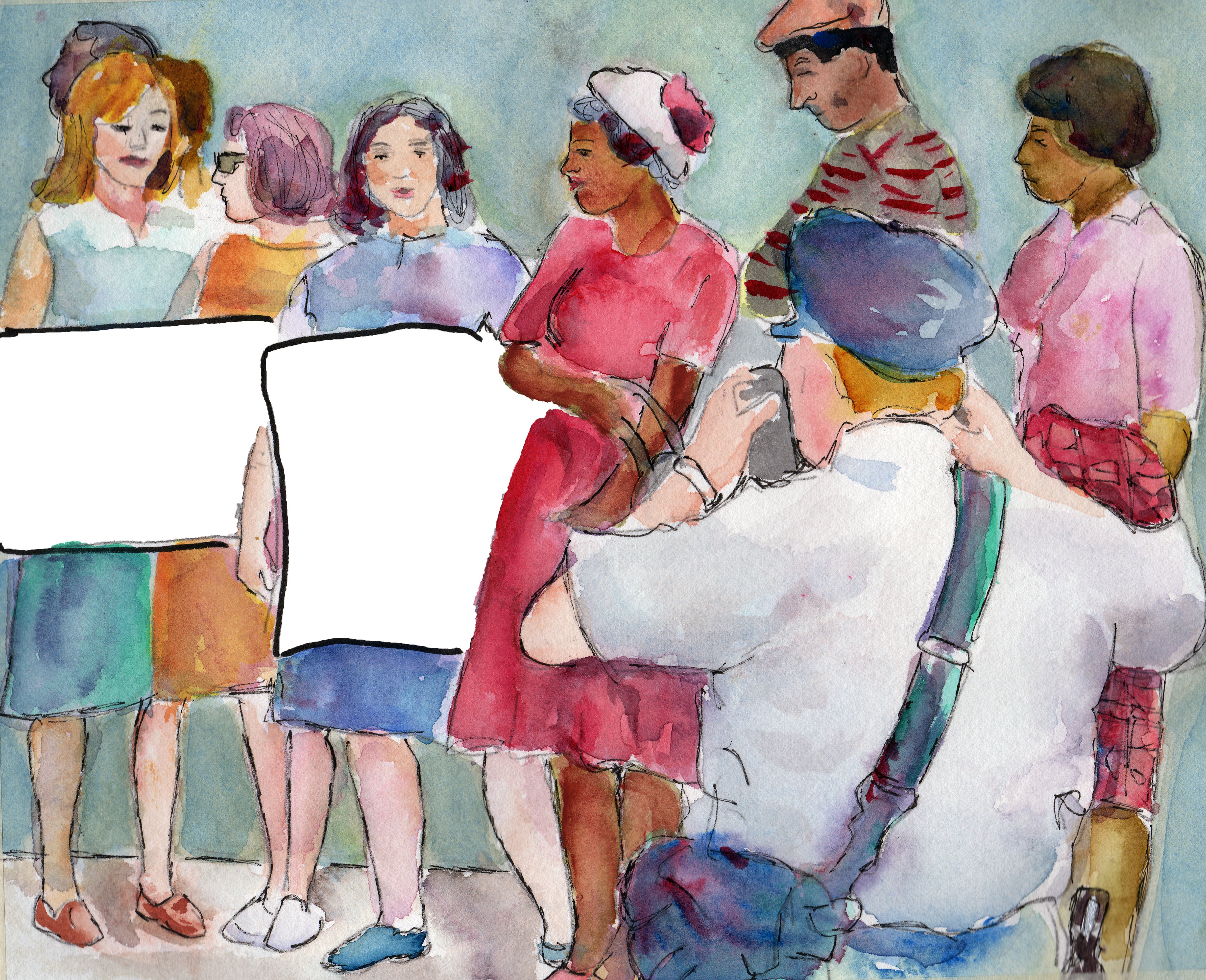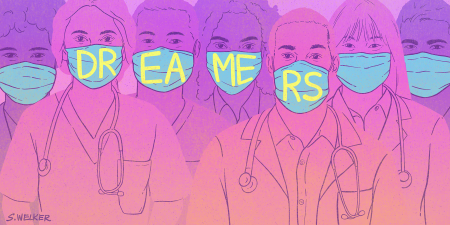Abstract
Clinicians have ethical obligations to promote health equity. One way to do so is through democratic engagement. This watercolor painting looks to our 20th-century ancestors who fought to establish their—and many of our—voting rights.
Figure. Why I Vote: The Ethical Obligation to Promote Voter Engagement to Achieve Health Equity

Media
Watercolor.
Caption
Clinicians have an ethical obligation to promote public health and health equity, and one way to do so is through democratic engagement. This painting’s colors and figures invite viewers to look back to our 20th-century ancestors’ struggles to gain political, social, and cultural recognition of their full US citizenship. This struggle became the foundation of their, and our, right to vote. Basic human rights recognition continues to demand that all of us act and vote in the interests of everyone who relies on professional caregivers to respond with care, compassion, and skill to individual and collective needs and vulnerabilities.



